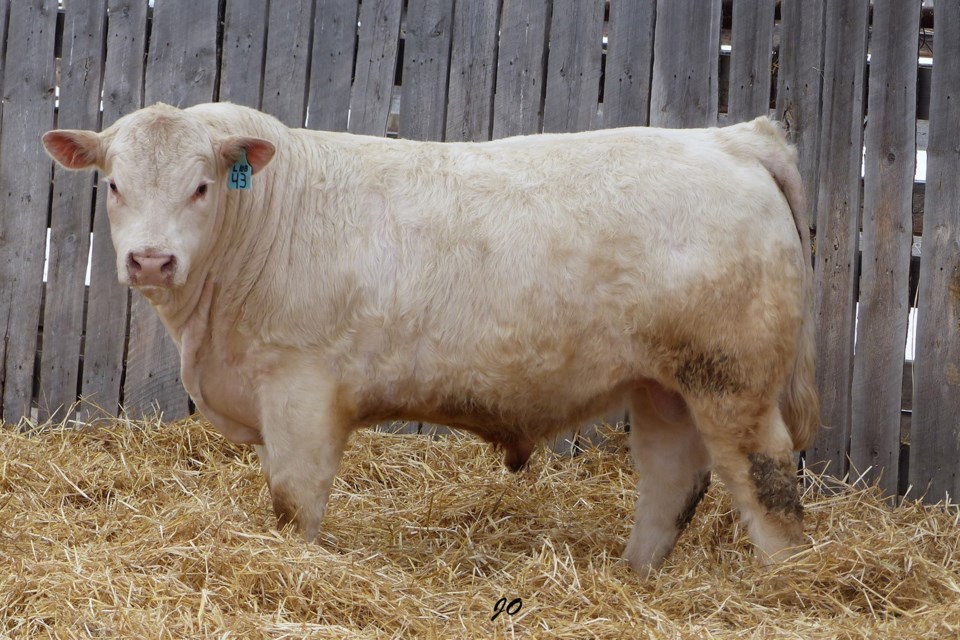The effects of COVID-19 have been felt throughout Rocky View, Red Deer and Mountain View counties, across virtually every industry and sector.
But one segment of the population that hasn’t seen much of a lifestyle disruption during the pandemic is ranchers.
According to Kelly Fraser-Smith, chair of the Alberta Beef Producers, March presents the tail end of the calving season for ranchers in Alberta, which keeps beef producers mostly at home.
“This is a typical time of year for many of us to already be socially distancing or isolating, as we’re at home 24/7, working and checking our cows,” said Fraser-Smith, who operates a ranch near Innisfail.
“Many of us live a long ways from town, so we plan ahead on our grocery runs and we’re not at the store every day, typically. We always kind of have our freezers stockpiled. We ourselves weren’t so much part of the mass-purchasing and hoarding – that’s just the preparation of living 20 minutes to an hour away from town.”
One of the few hiccups for some ranchers, according to Fraser-Smith, is that children are now kept home, as schools are all closed.
“Not only are we having to calve our cows, do our chores and do our daily duties, but many of us are now adding a home-schooling element into our lives,” she said. “We do have the extra hands, with the kids being home, but we have the added chore of making sure our kids are staying up on their schoolwork, and progressing themselves.”
Though a rancher’s personal lifestyle may not have changed very much, one way the sector has been impacted by the pandemic is a recent increase in demand for freezer-friendly grocery products – including beef.
“In the initial stages, we were seeing more meat cases being emptied,” Fraser-Smith said. “It was kind of a feel-good thing for our producers to see how consumers were getting to the retail level and making sure their freezers and fridges were stocked with our products, and to see the support consumers had for Alberta beef producers.”
• COVID-19 UPDATE: Follow our COVID-19 special section and interactive map for the latest local and national news on the coronavirus pandemic, as well as resources, FAQs and more.
On March 27, the Alberta government deemed agriculture an essential service, which allows ranching operations to proceed.
The ban on gatherings of 15 people or more does not apply to companies that are deemed an essential service, though they are still directed to implement measures to help limit the potential transmission of COVID-19.
According to Fraser-Smith, the essential service designation was important to Alberta’s agriculture sector, as it ensured the food supply chain would remain uninterrupted.
“For us, it’s basically business as usual – we haven’t experienced the shutdowns that other industries did,” Fraser-Smith said. “I’m incredibly grateful we were deemed an essential service.”
For those in the ranching sector, a priority is ensuring the province’s beef processing plants remain operating at full capacity, Fraser-Smith said, as those facilities are crucial in keeping the supply chain running.
The Harmony Beef processing plant in Balzac did have to temporarily reduce production March 27 after an employee tested positive for COVID-19, and the Canadian Food Inspection Agency did not allow its inspectors to access the plant until safety conditions were assessed.
Additonally, spring farm auction sales and cattle sales have been impacted by mandatory social-distancing rules and large gathering restrictions. Many have either been postponed or moved to online auction and bidding platforms.
“Well, it took a pandemic, but the ol’ boys have decided it’s time to get our sale online on DLMS (Direct Livestoock Marketing Systems,” states a social media post from Danies Cattle and O'Neill Livestock regarding their April 9 cattle sale hosted by the Innisfail Auction Market.
With files from Lea Smaldon




